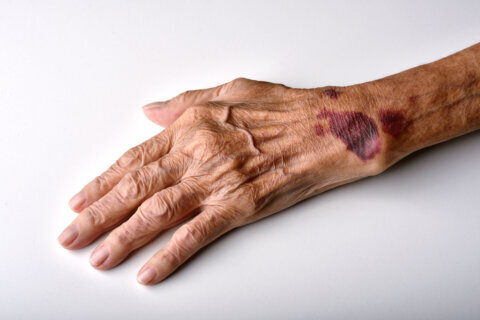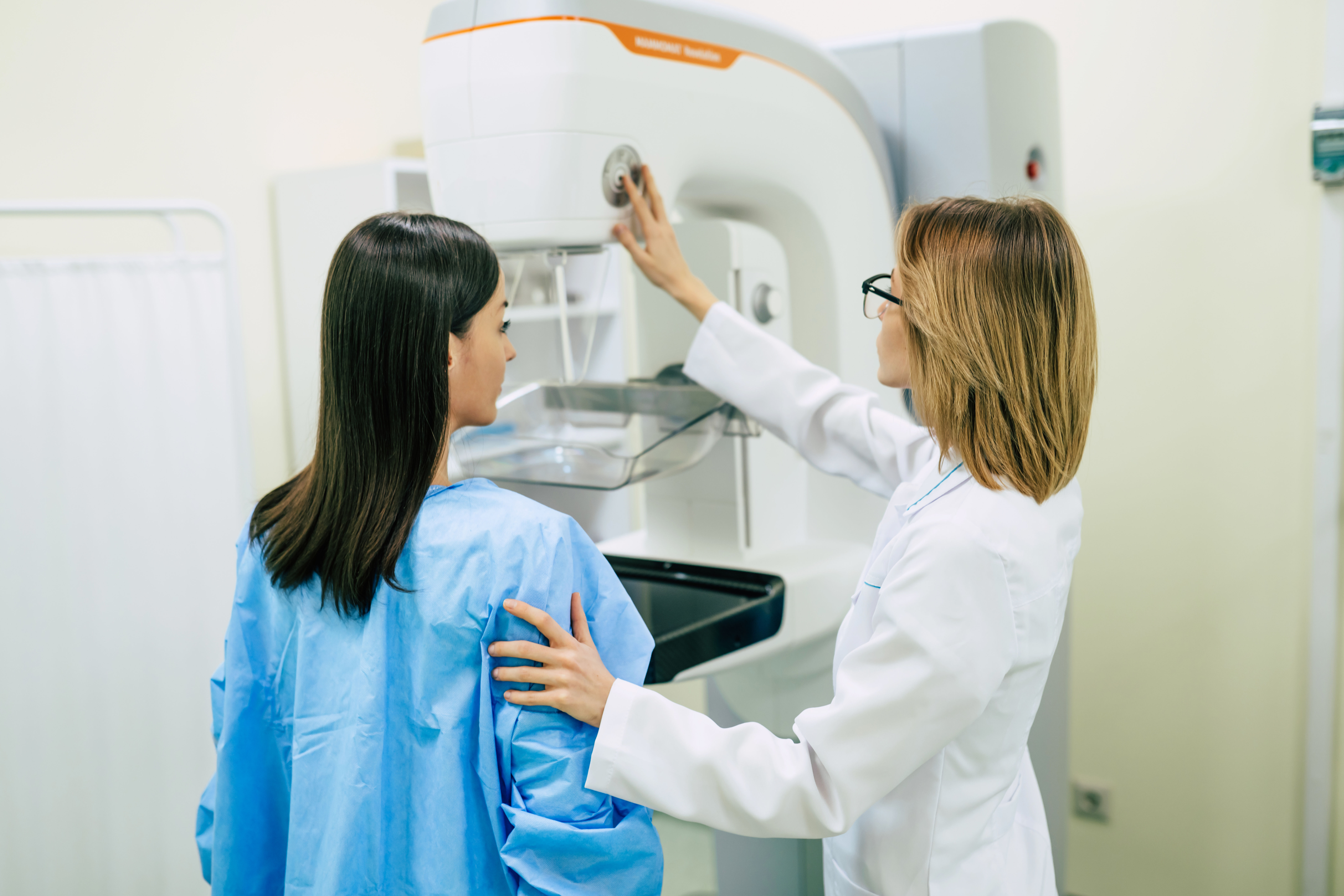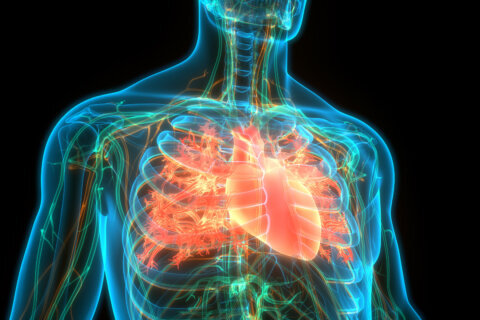This content is sponsored by MedStar Washington Hospital Center.
New moms adjust to a lot of changes when they welcome a baby into the world – the baby’s sleep schedule, feeding times and temperament. However, some significant changes also occur in women’s own bodies after childbirth.
The postpartum recovery journey can be different for every woman, and the team at MedStar Washington Hospital Center can help new moms navigate these changes and help moms get the care they need.
“After delivery, everyone — including mom — is focused on the baby’s health and well-being. That’s normal and expected,” said Dr. Alexis Dieter, a urogynecologist at MedStar Washington Hospital Center. “But we also need to make sure we focus on helping moms take care of themselves, and we hope that their partners, friends, family, fellow moms and support systems will do the same.”
A woman’s body has been through a lot during the birth of a child. If complications arise, that can make recovery an even bigger uphill climb. Dr. Dieter has some recommendations to help with recovery.
One of the most important things is to be patient with yourself as your body recovers. Do not to rush to exercise or lift heavy things. Moms should limit lifting heavy objects as much as possible for at least six weeks after delivery – however, that may not be as easy for everyone.
“When my son was born, he weighed 10 pounds, my daughter weighed 25 pounds, and my obstetrician told me not to lift anything over 10 pounds!” Dr. Dieter recalled. “So, we understand that you must take care of your kids and that lifting can be a necessary part of life for many new moms. If you have someone who can help, please ask them!”
While moving around and going on walks is advisable, new moms shouldn’t overdo it. Trust that movement and exercise will get easier with time.
Postpartum bleeding is normal, but if at any time moms are using two or more sanitary pads per hour, or are lightheaded or dizzy or have other concerns, they should call their doctor. Bruises and swelling are also normal as everything begins to heal.
“I also advise my patients to refrain from looking ‘down there’ for at least a month, as what is a normal appearance during recovery can seem quite concerning to some women and cause unnecessary anxiety,” Dr. Dieter said, “… so, unless you have a specific concern, let your doctor do the looking and focus on caring for yourself and your new baby.”
Postpartum medications can help new moms manage pain. Beyond prescription medications, Dr. Dieter recommends ibuprofen, a warm or cold compress, or “padsicles,” which are made using an ice pack or frozen aloe gel as well as adding witch hazel on top of a sanitary napkin to help provide additional relief. Women who had a C-section may find relief with an abdominal binder or support. For all moms, if pain is worsening, they should reach out to their doctor.
After childbirth, moms may encounter some challenges using the bathroom. It’s always better to have a loose bowel movement than constipation, so moms should hydrate and start a stool softener like Colace® (docusate), Dr. Dieter said. If straining is the worry, a safe over-the-counter laxative like MiraLAX® (polyethylene glycol) will help, she added.
Bladder leakage may occur after childbirth and persist for months after delivery. Although distressing and annoying, it is normal, she said, and should improve. If not, tell your doctor.
Most obstetricians recommend that moms should also wait at least six weeks after delivery before engaging in sexual activity. It is common to experience dryness during intercourse after childbirth. Dr. Dieter tells her patients to use a high-quality, silicone-based lubricant and avoid lubricants with scents, flavorings or products that heat up, until everything has healed up.
Vaginal dryness can also occur at other times as well as a result of lower estrogen levels, which are normal postpartum. Dr. Dieter recommends talking to your provider if this is a concern as women can benefit from taking a small, safe dose of prescription estrogen, which can be applied directly to the area through a cream, tablet or vaginal ring.
Vaginal laxity or looseness can be a common concern, even up to a year after delivery. Although things may not return completely to the way they were before delivery, there shouldn’t be any bothersome bulges or pressure in the vaginal area, Dr. Dieter said. If issues do arise with pressure or laxity, women should see a doctor and may want to consider pelvic floor physical therapy.
“[Pelvic floor physical therapy] can help increase abdominal strength and break up scar tissue after a C-section. In some countries, every new mom gets pelvic floor PT, which I think is a great idea!” Dr. Dieter said.
In every woman’s postpartum recovery journey, they should be on the lookout for a fever, which could indicate an infection that needs treatment.
The good news for first time moms is that after the birth of the first child – it will likely get easier! Almost all women have an easier time with subsequent deliveries, Dr. Dieter said. However, if you are planning for more children, doctors recommend separating siblings by 18 to 24 months to give the body the best chance for recovery and healing.
“It’s a personal decision that has many factors to consider, but data shows there are fewer complications if you allow adequate time to recover from childbirth,” Dr. Dieter said.
With a talented group of healthcare providers, MedStar Washington Hospital Center is a great option for women seeking care, Dr. Dieter said. There are many approaches to treatment based on women’s needs – from pelvic disorders to surgical options.
Women should see their healthcare provide throughout their postpartum recovery – even if they are feeling good, Dr. Dieter said.
“Besides attending your regular appointments, never hesitate to reach out to your provider if you have a fever, significant bleeding, or pain that’s getting worse,” Dr. Dieter said. “We are here to help get you back on the path to recovery.”
Read more in a blog post from Dr. Dieter on MedStar Washington Hospital Center’s website.







